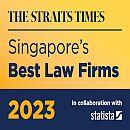E-briefing: Tactical Silence: Singapore Court of Appeal Rules on the Remedies Available to a Non-Participating Respondent to an Arbitration Who Objects on Jurisdictional Grounds
Tactical Silence: Singapore Court of Appeal Rules on the Remedies Available to a Non-Participating Respondent to an Arbitration Who Objects on Jurisdictional Grounds
Why this is important
In Rakna Arakshaka Lanka Ltd v Avant Garde Maritime Services (Private) Limited [2019] SGCA 33 (“Rakna”), the Singapore Court of Appeal (SGCA) laid down, for the first time, the rule in relation to a non-participating respondent in an international arbitration who objects to the Tribunal’s jurisdiction:
- If the Tribunal decides that it has jurisdiction as a preliminary issue, the non-participating respondent may, under Article 16(3) of the UNCITRAL Model Law, appeal this ruling to the supervisory court within 30 days.
- If the non-participating respondent does not appeal the Tribunal’s ruling to the court, it may still apply to set aside an award issued by the Tribunal on jurisdictional grounds.
- This puts the non-participating respondent who does not appeal the Tribunal’s ruling seemingly at an equal or possibly better position than the participating respondent who also does not appeal the Tribunal’s ruling. This affects the potential strategies that a respondent may take in relation to the jurisdiction issue.
Background facts
The appellant Sri Lankan maritime company, RALL, was a non-participating respondent to an arbitration commenced by a Sri Lankan state-owned entity, AGMS. The parties had entered into a Master Agreement which contained a dispute resolution clause providing for a Singapore-seated arbitration in accordance with SIAC Rules.
AGMS filed a Notice of Arbitration (“Notice”) at SIAC to commence proceedings against RALL in respect of an alleged breach of the Master Agreement. RALL did not file a Response, but twice requested for extensions of time from SIAC to do so. After the commencement of the arbitration, parties negotiated and entered into a settlement agreement contained in the parties’ Memorandum of Understanding (“MOU”).
On this basis, RALL notified the SIAC that AGMS had agreed to withdraw the arbitration and thereafter declined to participate in the arbitration. AGMS, however, took the view that there was no valid settlement agreement. The Tribunal proceeded with the arbitration without RALL’s participation and issued a Final Award in favour of AGMS.
Subsequently, RALL filed an unsuccessful setting aside application before the Singapore High Court (SGHC) on jurisdictional, natural justice, and public policy grounds. RALL then appealed the SGHC decision to the SGCA.
The SGCA Ruling
The SGCA allowed the appeal and ordered the Award to be set aside. The Court ruled that a non-participating respondent may apply to set aside an award on jurisdictional grounds even if it did not appeal the Tribunal’s jurisdictional ruling under Article 16(3) of the UNCITRAL Model Law. This is as a respondent who stays away from the arbitration proceedings cannot be said to have contributed to a wastage of costs (that would otherwise have been prevented by a timely application under Article 16(3)).
The Court also found that there was a valid settlement agreement in the parties’ MOU which was operative with immediate effect. Accordingly, from the date of the MOU, the Tribunal no longer had jurisdiction to decide the dispute between parties.
Key Principles
- A party to a contract which contains an arbitration clause is obliged to resolve disputes under that contract by arbitration. This principle is supported by Section 6 of the Singapore International Arbitration Act which directs a court to stay any court proceedings instituted in breach of an arbitration agreement.
- Such a duty to arbitrate falls only on the claimant. The law does not compel a respondent to participate in the arbitration and defend his position. It is the prerogative of every respondent to decline participation in an arbitration if it believes that the proceedings will not result in a final award against it or that there are sufficient grounds to resist enforcement of the award. This is especially so where there is no arbitration agreement or where arbitration proceedings are in some way contrary to parties’ agreement, as alleged here.
- A respondent may therefore choose to sit out an arbitration if it believes that the Tribunal lacks jurisdiction.
- However, the Court cautioned that sitting out an arbitration may be a risky course of action to pursue. If the respondent is mistaken in its belief, then the arbitration which proceeds without its participation will end in an award which will be enforceable against it and no challenge to jurisdiction that it may thereafter file will be successful.
Who is the “Non-Participating Respondent”
- The Court held that RALL qualified as a non-participating respondent. While RALL initially requested for extensions of time to file its Response to the Notice (which may potentially be considered as participation), RALL’s position fundamentally changed after the MOU. From then on, it took a clear stand that the arbitration should be stopped. The acts of RALL in: (i) writing to SIAC to inform the latter of the facts; and (ii) asking SIAC for information on the actions taken by the Tribunal, did not amount to participation in the arbitration.
What this means for parties: A quick guide
The SGCA’s decision in Rakna potentially places a non-participating respondent in an equal if not better position vis-à-vis a participating respondent as regards the choice of remedies that avail to each where neither has appealed the Tribunal’s ruling under Article 16(3) of the UNCITRAL Model Law.
- Participating Respondent: Pursuant to an earlier SGCA ruling in Astro Nusantara International BV v PT Ayunda Prima Mitra [2013] 1 SLR 636 (“Astro”), a participating respondent who failed in its jurisdictional challenge to the Tribunal but who does not avail itself to the “active” remedy of court recourse under Article 16(3) can still avail of the “passive” remedy of resisting enforcement of the arbitral award on jurisdictional grounds. However, the Court in Rakna noted in obiter that that such a respondent may not be able to later bring a setting aside application, having contributed to the wasted costs during the entire arbitration.
- Non-Participating Respondent: Under Rakna, a non-participating respondent in the same situation can still later apply to set aside the award as the preclusive effect of Article 16(3) Model Law does not apply to it. The Court noted that any wasted costs that would result from setting aside an award rendered in the respondent’s absence would be self-induced by the claimant. It is also open to such a respondent to resist enforcement of the award on jurisdictional grounds.
Conclusion
Rakna underscores the importance for parties to consult their legal counsel early to conduct an honest and thorough review of the strength of a respondent’s jurisdictional objections at the outset of an arbitration. For example, if a respondent has strong grounds to object to jurisdiction, with proper legal advice, it may consider adopting tactical silence or non-participation in the arbitration. On the other hand, claimants should also be aware of the potential risks in proceeding with an arbitration against a non-participating respondent, such as wasted costs. Proper and prompt legal advice is essential to navigating the potential strategies available to parties in an arbitration.
A copy of the CA decision is available here
Eversheds Harry Elias International Arbitration Group
Eversheds Harry Elias regularly provides advice on complex international commercial disputes. We have extensive experience in advising and successfully representing multinational entities in international commercial arbitration. As a full-service Singapore law firm, we have full rights of audience before all tiers of Singapore Courts. We are therefore well placed to advise and support our clients in any arbitration-related court applications before the Singapore Courts.
For further information, contact: |
||||||
|
Francis Goh Head, International Arbitration Partner, Eversheds Harry Elias francisgoh@eversheds-harryelias.com +65 6361 9835 Shaun Leong Of Counsel, Eversheds Harry Elias shaunleong@eversheds-harryelias.com +65 6361 9369 Janice Lee Foreign Legal Associate, Eversheds Harry Elias janicelee@eversheds-harryelias.com +65 6361 9821 |
||||||
|
Chua Ting Fang Legal Associate, Eversheds Harry Elias tingfangchua@eversheds-harryelias.com +65 6361 9808 |
For more information, please contact our Business Development Manager, Ricky Soetikno at rickysoetikno@eversheds-harryelias.com













